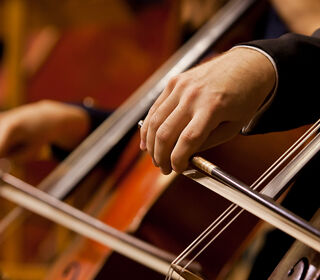
Blog Article

For today's generation, what does classical music mean? Who does it accurately represent and who is underrepresented? This exciting, interdisciplinary research project aims to promote new creative work, change perceptions and ensure classical music remains relevant and in-touch with the twenty-first century.
Researchers:
- Adam Whittaker
- Adrian Curtin (University of Exeter)
Research background
Questions about what classical music represents, whom it represents, and who is missing or under-represented in its practices are currently to the fore of public and scholarly debate about the art form and the profession, rendering this a highly topical, urgent set of concerns. The classical music sector has been criticised for being elitist, patriarchal, chauvinistic, and predominantly white. These criticisms may not be uniformly fair or accurate, especially in a global context, yet it is clear there is still work to be done to achieve equal opportunities and inclusion. The classical music industry has endeavoured to reinvent itself by shaking off its perceived 'stuffiness', cultivating new audiences, diversifying programming and ensembles, and experimenting with new performance formats and technologies. Concurrently, representations of classical music in the arts are taking new forms, such as the role-playing video game Eternal Sonata (2007), centred on the Romantic composer Frédéric Chopin, and the popular Amazon television series Mozart in the Jungle (2014-2018).
Representations of this sort help to shape ideas about classical music among its devotees and, more broadly, in the popular imaginary, although the relationship between representations and the 'reality' of the profession is, of course, not one-to-one. Artistic representation and 'reality' do not necessarily align, though they can influence one another -- but how, exactly? To what extent are artistic/media representations of classical music helping or hindering efforts to change industry practices? This network will answer these and other research questions by bringing greater clarity to the function of representation in the 'circuit of culture' concerning classical music.
Research aims
This network will connect scholars in the humanities and social sciences with professionals working in the arts and media to foster interdisciplinary and cross-sector dialogue, develop research projects, promote the creation of new artistic work, disseminate knowledge, and inform industry practices concerning the representation of 'classical music' in the twenty-first century, especially in the UK. The network will adopt an innovative, dual focus on representation: it will consider contemporary artistic and media representation *of* classical music (e.g., plays and films depicting 'classical' musicians) as well as demographic representation *in* the classical music industry. The latter includes representation of 'classical' musicians by agents and record companies; musicians' self-representations (e.g., on social media); and the demographics of the classical music profession and repertoire vis-à-vis gender, class, (dis)ability, and ethnicity. The issue of representation will thus be addressed in multiple spheres. This network will provide a forum for conversations that are currently happening in a disconnected manner, and facilitate joined-up thinking about topics that can easily be compartmentalised.
How is the research being carried out?
Special attention will be given to the authoring, authorising, and embodying of representation in both the practice and depiction of classical music-making. How is classical music differently understood when it is embodied by people who are not traditionally associated with it (e.g., disabled people, ethnic minorities)? The network will contribute to the debate about representation in classical music by exploring the power of images and embodied presence to re-shape popular conceptions of the art-form. It will advocate for how representation might be conducted more equitably and constructively by offering a 'key findings' report to be circulated across the sector. An emerging BAME and/or disabled artist will be invited (through a 'call out' commission) to participate in network discussions and produce a new script for theatre, radio, TV, or film that engages with the network's main themes, thus helping the network to advance artistic enterprise as well as scholarly research.
Funding
£7,254
Looking to the future
This research is ongoing, but it will produce a number of academic outputs, a new piece of dramatic writing, and lead to public events in Birmingham in April 2020.